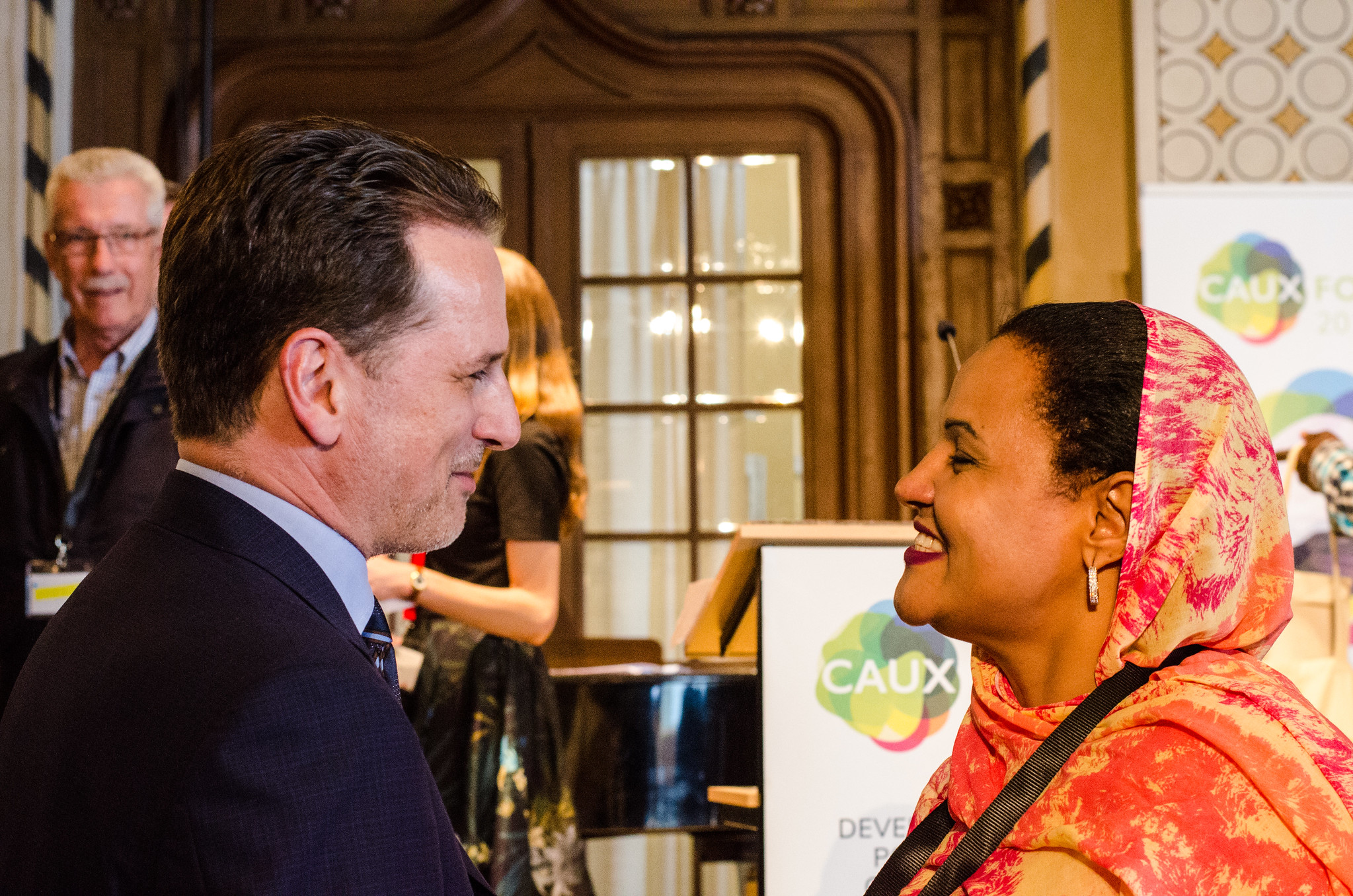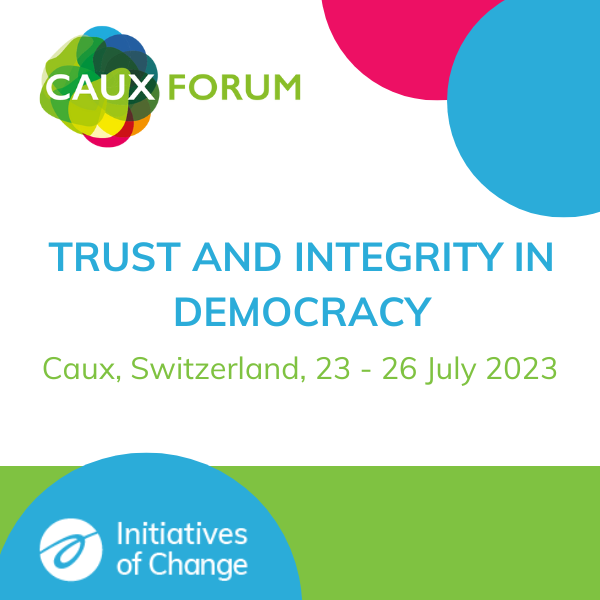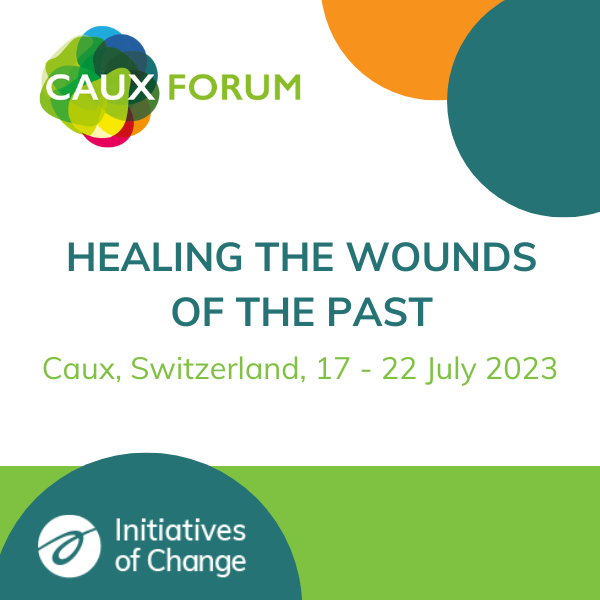Advancing human security in Caux one pillar at a time
Just Governance for Human Security 2017
24/07/2017
‘For anyone taking human security seriously, it’s a vital necessity to oppose and reject the inevitability of war,’ said Pierre Krähenbühl, Commissioner-General for UNRWA (the UN Relief and Works agency for Palestinian Refugees) at the opening of the fifth annual Just Governance for Human Security conference. ‘Without the recognition of individual pain, there is no healing,’ he continued. ‘There is no addressing the extremes, there is no diffusing the hatreds of tomorrow.’
Over five days, 250 participants from 55 countries convened at the Caux Palace in Caux, Switzerland, to address extremes of all kinds. They included diplomats, NGO representatives, business leaders, academics and citizens concerned with human security. The event took a holistic approach to human security, focusing on its six pillars: good governance, sustainable living, inclusive economics, care for refugees, healing memory and food security.
‘The only way to solve hate and violence is with compassion and empathy,’ said former white supremacist turned peace activist Christian Picciolini, one of the panellists in the plenary on the roots of extremism and violence. He described how he was recruited in 1987 by a white supremacist who gave him the ‘promise of a future, of something powerful when [he] was powerless’. His fellow panellists – Paul Turner, expert in Countering Violent Extremisms, former extremist Ziad (Fouad) Saab and Carol Mottet of the Swiss Federal Department of Foreign Affairs – agreed that collective action and dialogue are needed to fight violence and build resilience.
Participants had the opportunity to continue the discussion in dynamic workshops on such themes as food security, inclusive finance, refugees and environmental threats. People from different parts of Ukraine and Eastern Europe met in dialogue, as did Turks, Armenians and Kurds. Another dialogue focused on race and healing in Tulsa, USA and yet another on the ‘people’s money movement’. Training was offered on migrants and refugees as rebuilders, on negotiation approaches and on combating violent extremism.
Every morning, participants had the chance to hear the inspiring story of a courageous peacebuilder. ‘We need to embrace this culture of forgiveness to break the cycle of violence’, said Rwandan singer-songwriter Jean Paul Samputu, as he told how he publicly forgave the man who had killed his family. Letlapa Mphahlele, former director of operations of the Azanian Peoples Liberation Army during apartheid in South Africa, reminded the audience that ‘the best gift a human being can give another human being is forgiveness’. American Shalisa Hayes described how, after losing her teenage son to gun violence, she founded the Billy Ray Shirley III Foundation, through which she works to provide young people with opportunities and alternatives to violence.
2017 also saw the launch of humansecurityX, a parallel training course which offered an in-depth exploration of the six pillars of human security. As he handed out certificates to forty graduates from over fifteen countries, David Chikvaidze, Chef de Cabinet of the Director General at the UN Office at Geneva, said: ‘In the pursuit of human security, we as citizens, activists and leaders all have a role to play. This is why programmes such as the Caux Forum and humansecurityX are so important. They provide the knowledge, skills and cross-sectoral connections needed to fuel citizen engagement.’
As the event came to a close, participants took on a 90-day challenge to bring what they had learned in Caux back to their communities. One such initiative started on the last day of the conference, when 60 per cent of the conference participants pledged not to purchase any plastic for 30 days.































